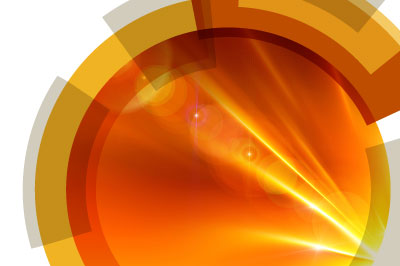 James (Jim) De Yoreo (Introductory lecturer), Pacific Northwest National Laboratory PNNL, United States
James (Jim) De Yoreo (Introductory lecturer), Pacific Northwest National Laboratory PNNL, United States
Jim De Yoreo is a Battelle Fellow at Pacific Northwest National Laboratory (PNNL) and an Affiliate Professor of Materials Science and Engineering at the University of Washington. He received his PhD in Physics from Cornell University in 1985. Following post-doctoral work at Princeton University, he became a member of the technical staff at Lawrence Livermore National Laboratory in 1989, where he held numerous positions. He joined Lawrence Berkeley National Laboratory in 2007 where he served as Deputy and Interim Director of the Molecular Foundry before moving to PNNL in 2012. De Yoreo’s research focuses on interactions, crystallization and self-assembly in inorganic, biomolecular and biomineral systems. He has authored or edited over 300 publications. He is a recipient of the David Turnbull Lectureship of the Materials Research Society (MRS), the Laudise Prize of the International Organization for Crystal Growth (IOCG), the Crystal Growth Award of the American Association for Crystal Growth (AACG) and the DOE Office of Science Distinguished Scientists Fellow award. He served as President of the MRS; he is a Fellow of the American Physical Society and the MRS, and is a member of the Washington State Academy of Sciences, as well as the IOCG and AACG Executive Committees.
 Aurora Cruz Cabeza, University of Manchester, United Kingdom
Aurora Cruz Cabeza, University of Manchester, United Kingdom
After obtaining a BSc in Chemistry from the University of Jaén (2002) –with the second highest mark in the whole of Spain-, Aurora earned a Master’s Degree in Heterogeneous Catalysis from the University of Córdoba (2004). She then spent some months at the Royal Institution in London, where she learnt about various molecular simulations techniques and moved to Cambridge where Aurora gained a PhD in Physical Chemistry (2008) under the supervision of Dr Graeme Day and Prof. Bill Jones. Following her PhD, Aurora worked as a researcher in several pharmaceutical companies (Pfizer and Roche), the University of Amsterdam and the Cambridge Crystallographic Data Centre.
In 2016, Aurora joined the Department of Chemical Engineering and Analytical Sciences at the University of Manchester, where she is now a Reader in Crystallisation. Her research interests lie in the area of the organic solid-state, data analysis, molecular modelling, crystal engineering and crystallisation. Some of her best well-known work lies in the area of crystal polymorphism. Aurora has published over 75 research papers and given over 60 invited talks all over the world. She regularly serves the community as a reviewer and guest editor for various scientific journals. She is also a member of the Scientific Advisory Board for the Cambridge Crystallographic Data Centre.
 Kristen Fichthorn , Penn State University, United States
Kristen Fichthorn , Penn State University, United States
Kristen Fichthorn is the Merrell Fenske Professor of Chemical Engineering and a Professor of Physics at the Pennsylvania State University. She received a B.S. in Chemical Engineering from the University of Pennsylvania and a Ph.D. in Chemical Engineering from the University of Michigan. She spent one year as an IBM Postdoctoral Fellow at the University of California at Santa Barbara before joining Penn State.
Professor Fichthorn’s research is primarily in multi-scale materials simulation, in which she develops and applies theoretical techniques ranging from quantum density functional theory to molecular dynamics, Monte Carlo methods, and continuum theories to a diverse array of fundamental problems involving fluid-solid interfaces. Applications lie in nanoscale materials, thin-film and crystal growth, colloidal assembly, and wetting. In addition to being recognized by Penn State for her outstanding research and teaching, she is the recipient of the NSF Presidential Young Investigator Award (1990), an Alexander von Humboldt Research Fellowship (1998), she is a Fellow of the American Physical Society (2011), a Fellow of the American Institute of Chemical Engineers (2017), a recipient of the Nanoscale Science and Engineering Forum Award of the American Institute of Chemical Engineers (2019), and a recipient of the Langmuir Lectureship of the American Chemical Society (2020).
 Takeshi Fukuma , Kanazawa University, Japan
Takeshi Fukuma , Kanazawa University, Japan
Prof. Takeshi Fukuma obtained his PhD in Electrical Engineering from Kyoto University in 2003. Since then, he worked at Kyoto University as a postdoc, at Trinity College Dublin as a senior scientist, and at Kanazawa University as an associate professor. Since 2012, he has been a professor at Division of Electrical Engineering and Computer Science at Kanazawa University. Since 2017, he has also been the director of Nano Life Science Institute (WPI-NanoLSI) at Kanazawa University. His research interests include development of in-liquid atomic force microscopy (AFM) techniques and their applications to nanoscale studies on various phenomena at solid-liquid interfaces.
 Denis Gebauer , Leibniz Universität Hannover, Germany
Denis Gebauer , Leibniz Universität Hannover, Germany
Denis Gebauer is Professor at the Institute of Inorganic Chemistry of Leibniz University Hannover (Germany). After completing his Ph.D. at the Max-Planck-Institute of Colloids and Interfaces (Potsdam-Golm, Germany) in 2008, he stayed at Stockholm University (Department of Materials and Environmental Chemistry, Arrhenius Laboratory, Stockholm, Sweden) as a postdoctoral researcher for two years. Afterwards, he became Assistant Professor at the University of Konstanz, Department of Chemistry (Germany, 2011-2019).
Gebauer has received various awards that include a Zukunftskolleg Research Fellowship at the University of Konstanz, and the Heinz Maier-Leibnitz Prize awarded by the German Research Foundation and the German Ministry of Education and Research. His research is currently focused on mechanisms of nucleation and crystallization as well as biomineralization and materials chemistry in general. The application and development of analytical techniques for answering questions in these areas is a core expertise of the Gebauer group.
 Alexei Kiselev, Karlsruhe Institute of Technology, Germany
Alexei Kiselev, Karlsruhe Institute of Technology, Germany
Dr. Alexei Kiselev obtained his PhD in physics from Saint Petersburg University in Russia in 2000. Since then, he worked as a postdoc and later as a research scientist at V. A. Fock Institute of Physics in Saint Petersburg and at the Institute of Tropospheric Research in Leipzig, before moving to the Institute of Meteorology and Climate Research (IMK) at Karlsruhe Institute of Technology (Germany) in 2010. Currently, he is leading the research group of cloud microphysics at the Department of Atmospheric Aerosol Research at IMK. The work of his group is focused on ice formation mechanisms in atmospheric clouds, including heterogeneous ice nucleation and growth, contact freezing, and ice multiplication. His research interests extend far beyond cloud research towards science of aqueous interfaces, crystallography, atmospheric optics, and microbiology, engaging wide variety of experimental methods ranging from electron microscopy and synchrotron X-ray diffraction to Raman spectroscopy and electrodynamic particle levitation techniques.
 Boaz Pokroy , Technion - Israel Institute of Technology, Israel
Boaz Pokroy , Technion - Israel Institute of Technology, Israel
Boaz Pokroy is currently a full Prof. in the Department of Materials Science and Engineering at the Technion Haifa Israel. Prior to that he was a post doctoral fellow and a Fulbright scholar in the lab of Prof. Joanna Aizenberg at the School of Engineering and Applied Sciences Harvard University, Cambridge MA USA and Bell Labs, Murray Hill NJ.
The research of Pokroy focuses on biomineralization, crystal growth and bio-inspired materials. He studies the structure of bio-minerals on the atomic, nano and meso-scales using state of the art high-resolution characterization techniques such as high-resolution synchrotron diffraction and aberration corrected TEM. Based on the strategies that organisms use to produce natural materials, his lab also develops novel bio-inspired materials, such as semiconductors whose band gap can be tuned by the incorporation of intracrystalline biological molecules, controlling the short-range order of nano-amorphous materials and fabrication of superhydrophobic/superoleophobic surfaces for various applications.
 Jeff Rimer, University of Houston, United States
Jeff Rimer, University of Houston, United States
Jeffrey Rimer is the Abraham E. Dukler Endowed Chair and Professor of Chemical Engineering at the University of Houston. Jeff received B.S. degrees in Chemical Engineering and Chemistry from Washington University in St. Louis and Allegheny College, respectively. He received his Ph.D. in Chemical Engineering from the University of Delaware and spent two years as a postdoctoral fellow at New York University prior to joining Houston in 2009. Jeff’s research in the area of crystal engineering focuses on the rational design of materials with specific applications in the synthesis of microporous catalysts and adsorbents, and the development of therapeutics to inhibit crystal formation in pathological diseases. Jeff has received numerous awards that include the NSF CAREER Award, the 2016 Owens Corning Early Career Award and 2017 FRI/John G. Kunesh Award from AIChE, and the inaugural 2016 Mellichamp Emerging Leader Lecturer at the University of California at Santa Barbara. In 2018 he received the Norman Hackerman Award in Chemical Research from The Welch Foundation, and in 2020 the Edith and Peter O’Donnell Award in Engineering from TAMEST. He has also been the recipient of the Excellence in Research and Scholarship Award from the University of Houston, and Teaching Excellence Awards at both the University and College level. Jeff is a former chair of the Southwest Catalysis Society, an executive committee member for the American Associate for Crystal Growth and International Zeolite Association, and has chaired two Gordon Research Conferences on Crystal Growth & Assembly and Nanoporous Materials & Their Applications. He is an Associate Editor of ACS Crystal Growth & Design and also serves on the advisory boards for the AIChE Journal, Molecular Systems Design & Engineering, and Reaction Chemistry & Engineering.
 Jutta Rogal, New York University, United States
Jutta Rogal, New York University, United States
Jutta Rogal is currently a Heisenberg Fellow of the German Research Foundation (DFG) with a research appointment at the Department of Chemistry at New York University, USA, and at the Department of Physics at Freie Universität Berlin, Germany.
She received her doctorate from the Freie Universität Berlin in 2006, carrying out her PhD work on electronic structure calculations for surface catalysis at the Fritz Haber Institute of the Max Planck Society. For her PhD thesis, she was awarded the Otto Hahn Medal of the Max Planck Society and the Ernst-Reuter Preis of the Freie Universität Berlin. In 2007, Jutta moved to the University of Amsterdam as a postdoctoral researcher to develop methodological extensions to the transition path sampling approach, before joining the Interdisciplinary Centre for Advanced Materials Simulation (ICAMS) at the Ruhr University Bochum, Germany, as group leader from 2009-2020. In 2016, she was awarded a Feodor Lynen Research Fellowship of the Alexander von Humboldt Foundation which she spent at New York University in 2017/18 working on enhanced sampling techniques for high dimensional energy landscapes.
Her research focusses on the development and application of advanced molecular simulation approaches to capture the mechanisms and kinetics of structural phase transformations in molecular and atomic condensed matter systems. This includes the theoretical investigation of the initial stages of nucleation and growth, precipitate formation, and interface dynamics.
 Sarah (Sally) L Price (Closing remarks), University College London, United Kingdom
Sarah (Sally) L Price (Closing remarks), University College London, United Kingdom
Sally, officially Sarah, Price trained as a theoretical chemist at the University of Cambridge, specialising in deriving models of the forces between molecules from their wavefunctions. She worked at the Universities of Chicago and Cambridge, before becoming a lecturer at UCL (University College London), where she is now a Professor specialising in Computational Chemistry.
In developing the theory and computer codes to model the organic solid state, she has collaborated widely with experimental solid state chemists, pharmaceutical scientists, theoretical physicists and computational scientists, including leading the Basic Technology Project “Control and Prediction of the Organic Solid State”. She was awarded he RSC Interdisciplinary Prize in 2015 and elected to the Fellowship of the Royal Society in 2017 in recognition of the value of this collaborative work that has, and continues to, reveal the complexities of organic crystallisation.
Sally has written over 200 scientific publications, mainly in Chemistry journals but also in leading Pharmaceutical Science, Crystallography Molecular Biology and Physics journals. Those arising from the CPOSS work which form the basis of this lecture are on the website www.cposs.org.uk . Many of these are multi-disciplinary arising from stimulating work with a large number of PhD students, PDRAs, and academic and industrial scientists from many disciplines.




















